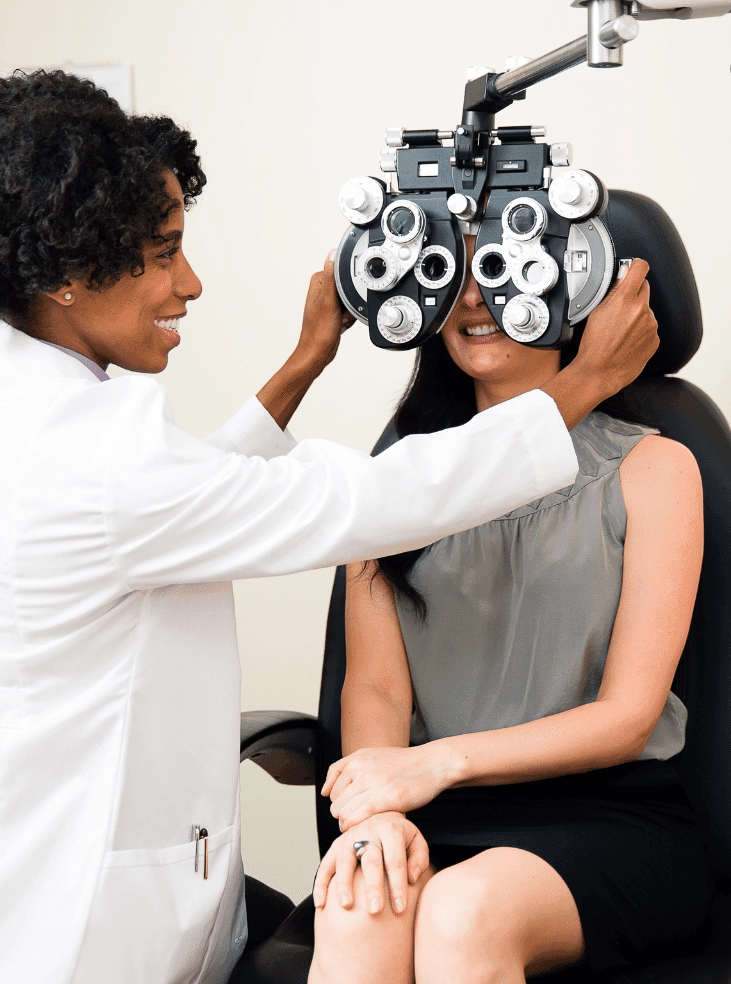OUR ARTICLES

Published on September 06, 2023
How often should you get an eye exam?
Maintaining your eye health involves more than just regular physical check-ups; it also includes ensuring that your eyes are in top condition. Among the many healthcare professionals you may visit, understanding when you should see an optometrist is vital.
Eye exams for people with glasses
Do you regularly wear glasses? If so, you may wonder how often you should go to the eye doctor if you wear glasses. The answer is every two years, at a minimum. These appointments allow your optometrist to monitor any subtle shifts in your vision and fine-tune your prescription, ensuring that the world remains in clear focus.
Moreover, these visits become even more crucial to detecting many potential eye concerns, such as myopia, hyperopia, astigmatism, and cataracts. If you have a family history of eye diseases or specific health conditions, including diabetes, annual check-ups are highly recommended.
Eye exams for people over 50
Will you turn 50 anytime soon? How often should you get your eyes checked after the age 50? Once you hit middle age, you may be more susceptible to eye diseases. These range from cataracts, glaucoma, macular degeneration, and diabetic retinopathy. Adults, especially those past their 50s, should aim for comprehensive eye exams every one to two years. It’s not just about vision clarity; our eyes often mirror changes related to health conditions that could affect your well-being later on in life. As part of your preventative healthcare plan, it is better to plan an eye exam with your optometrist regularly.
Feeling confident that you have great eyesight? A prevalent myth is that a perfect vision means you can avoid optometrist visits. Should you go to the eye doctor if you have perfect vision?
Absolutely. Vision perfection doesn’t mean you are immune to underlying eye health issues. Beyond determining prescriptions for eyewear, optometrists are trained to detect early signs of diseases that might not initially evolve into vision problems.
What to expect during an eye exam?
If you have never been to an eye exam before, it is only normal that you may be worried about what happens when you get checked. During an eye exam, your optometrist begins by inquiring about your medical history, followed by a visual acuity test using a standardized chart to gauge distance vision. Preliminary tests will assess your depth perception, colour vision, eye muscle movements, and pupil responses. Using a slit lamp, the optometrist will examine the front of your eye and measure intraocular pressure to assess potential risks of glaucoma.
The broader question remains: When should you see an optometrist?
While the frequency varies based on individual factors, certain signs may warrant a trip to the eye doctor. For example, if you are experiencing vision anomalies, consistent eye discomfort, or unusual visual phenomena like floaters, these are clear indicators to immediately book an appointment.
Regular eye check-ups are necessary; making regular appointments with your optometrist should be on your health checklist. Need more information about what eye exams entail? Contact the Eyes On team today to get answers to your questions.